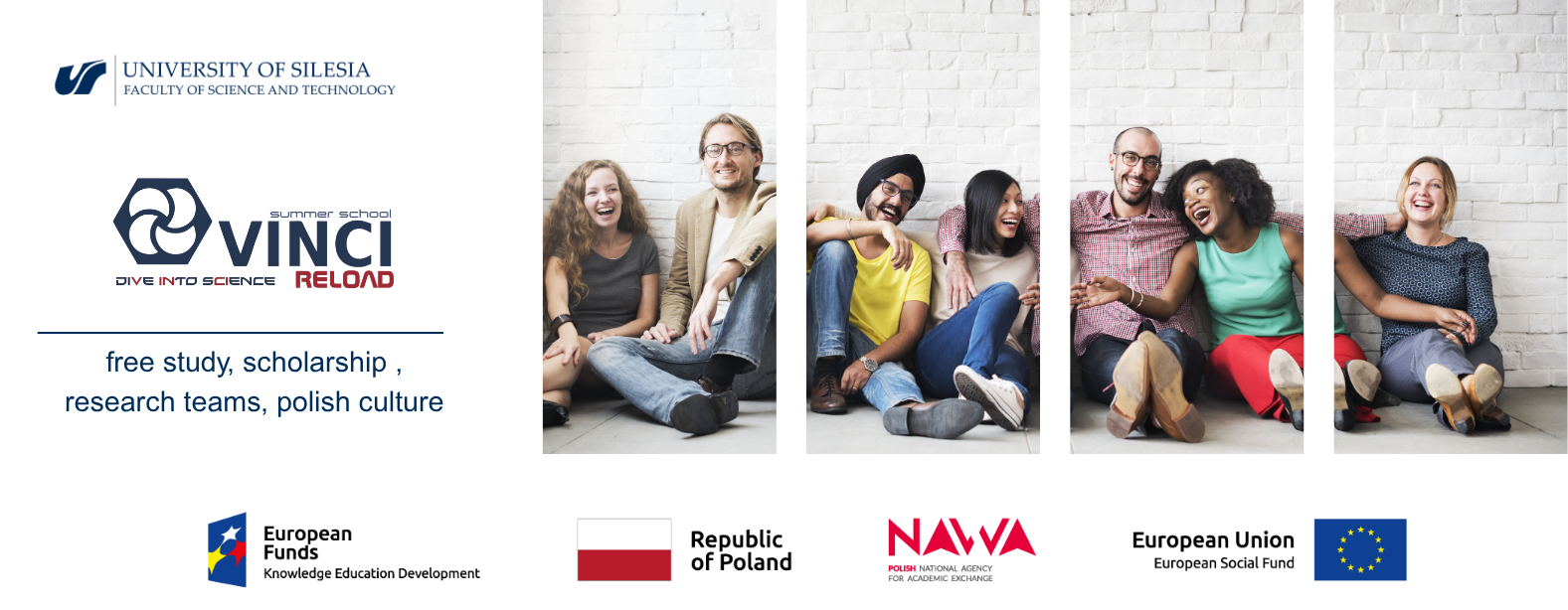![]()
During introductory lectures and workshops, participants of the Vinci Summer School in Physics will learn the fundamental issues of the structure of matter, condensed matter physics, magnetism and nanophysics, analogue and digital electronics, and the application of physics in medicine, pharmacology, and environmental research. They will also become acquainted with good practices in teaching physics, i.e. how to perform physics demonstrations effectively. During workshops conducted in the form of individual experimental projects in the Institute of Physics research teams, the student will have the opportunity to learn about the specificity of research work and the latest scientific research conducted by the teams. The students will get to know the laboratories of the Institute, and under the supervision of a research tutor, they will learn how to use the theoretical knowledge acquired during the lectures in practice. The students will actively participate in research conducted by institute research teams.
The school’s program includes classes in English with the following elements:
Basic lecture classes (15 hours)
Depending on the target group’s profile and research interests, classes will be carried out on topics related to the discipline chosen by the student: computer science, chemistry, physics, or material science and engineering.
- Structure of matter
- Nano physics and magnetism
- Applications of physics in medicine and pharmacology
- Experiment in physics
- Introduction to the physics of the amorphous phase
- From analogue to digital electronics
Interdisciplinary lecture classes (3 hours)
- Data mining and storytelling - Computer Science
- Applications of physics in medicine and pharmacology - Physics
Specialist workshops (30 hours)
Workshops in research teams. Each candidate will declare their willingness to cooperate with a given research team at the recruitment stage, selecting the appropriate topic. These will be stationary classes carried out in modern research laboratories.
- Experimental studies of nuclear interactions
- The perovskite solar cells in the context of green/renewable energy characterized by X-ray photoemission spectroscopy analysis
- The basics of Automatics and Robotics
- Measurement of the natural radioactivity of environmental tests
- Piezoelectric and optical properties of ABO3 perovskites
- Theoretical description of the processes that break the lepton number and their experimental verification
Online lectures (4 hours)
Lectures will be conducted by experienced foreign professors specializing in the proposed topics.
- Isospin symmetry violation in the kaonic sector beyond known effects
Strong interactions preserve an approximate isospin symmetry between up and down quarks, which is part of a more general flavour symmetry. In the case of kaon production, if this isospin symmetry were exact, it would result in equal numbers of charged and neutral kaons. Recently, the NA61/SHINE Collaboration at the CERN SPS reported in Nature Communications that the experimental results on heavy-ion collisions show the violation of isospin symmetry in the kaon sector, exceeding expectations from known effects. In this talk, I will give a brief introduction to the unexpected discovery and summarise recent experimental and theoretical news related to it.
- Introduction to Astroparticle Physics
To jest ukryty tekst, który pojawi się po kliknięciu w nagłówek.
</details>
